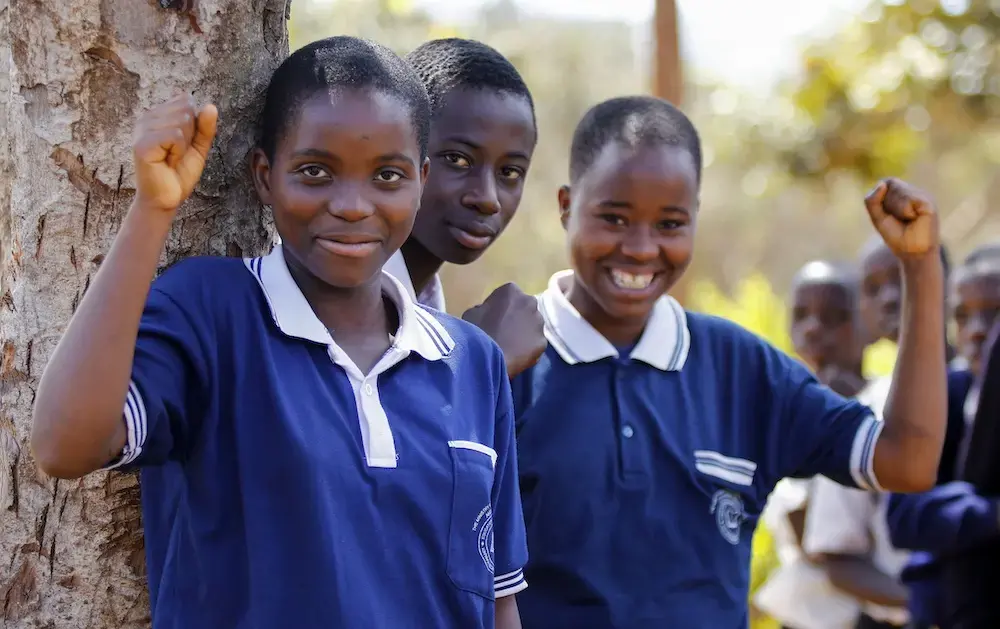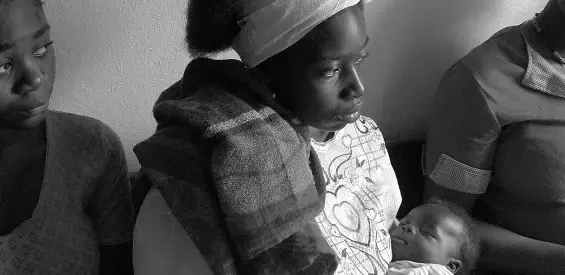Young people make up the largest and fastest growing proportion of the general population in East and Southern Africa. In 2022, 32 per cent of the population were youth aged 10 to 24 years (almost 208 million).
If empowered and provided with education, good health and productive employment, this growing population group offers a valuable opportunity for tapping into the Demographic Dividend. They stand to contribute to positive and transformative changes in their countries, the region and the continent. Additionally, making progress towards universal sexual and reproductive health and rights not only enhances health but also leads to specific benefits in terms of gender equality and climate considerations for countries in the region.
If young people have opportunities to realise their potential, this 'youth bulge’ could be an opportunity to renew the continent’s social and economic capital. Yet our adolescents and youth face many risks as they navigate their lives – unemployment and economic exclusion, unwanted pregnancies, high maternal deaths, sexually transmitted infections and gender-based violence.
Death in childbirth and HIV-related complications are the two main causes of mortality among young women in the region. A high proportion of girls do not want to fall pregnant but are not using contraception, and unsafe abortions continue to contribute to maternal deaths and injuries. When teenagers become mothers and fathers, they are often unable to reach their full potential.
Due to the sheer number of young people, their sexual behaviour will shape the course of the entire African continent. It is critical, therefore, to invest in young people’s sexual and reproductive health. Research shows that investments in reproductive health protect the well-being of young people, maximize their potential for healthy and productive lives, and improve social and economic development.
UNFPA’s response
The TuneMe mobisite (mobile site) increases young people’s knowledge of protective sexual behaviour and links them to SRH/HIV services. It is designed for low- and high-end devices in environments where high data charges and poor network coverage combine to limit access to online services. Through social features and content designed to engage users rather than lectures, Tune Me aims to equip adolescents with the information and motivation they need to make better choices.
There are more than 300 stories on the site, covering diverse sexual and reproductive health topics and concerns of young people. The mobisite also boasts of a youth-friendly clinic finder by geo-location, including feedback mechanisms to track quality of care as well as an option for users to ask an expert on sexual and reproductive health issues and to share their own stories.
Live in eight countries (Botswana, Eswatini, Lesotho, Malawi, Namibia, South Africa, Zambia and Zimbabwe), TuneMe continues to expand and has informed the development of a starter pack on m-Health. Adolescents access Tune Me through the internet browser on their mobile phone or through Facebook’s Internet.org platform. TuneMe is also available on Free Basics, which allows any young person with a mobile phone to access the platform without the limitation of data or wifi connectivity.
Our animated AMAZE videos, aimed at young people aged 10 to 14 years, address sexual and reproductive health and life skills. They are used by teachers, out-of-school CSE facilitators, peer educators and parents to support the delivery of in or out-of-school CSE through face-to-face or remote learning modalities. They are tailored to the specific social and cultural contexts of the ESA region and are available in English, French, Portuguese and Kiswahili.
By championing the inclusion of menstrual health as a component of sexual reproductive health rights, we highlight the plight of girls who lack access to hygienic sanitary products and safe facilities to change and wash menstrual supplies safely and in privacy, especially in humanitarian settings. Together with the African Coalition for Menstrual Health and other partners, we have convened two African Symposiums on Menstrual Health. Our advocacy efforts have produced standards for washable and reusable sanitary towels and policy changes, including the removal of VAT on menstrual health products in Kenya, Lesotho, South Africa, the United Republic of Tanzania and Zimbabwe.
We also support national youth networks, such as the East and Southern Africa Regional African Youth Adolescents Network on Population and Development (AfriYAN), to set up country chapters, train young people and participate in regional and global forums to voice the needs and concerns of youth.
Last updated 3 March 2024



